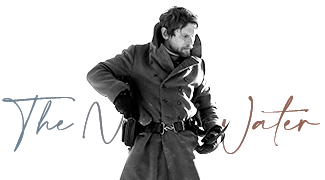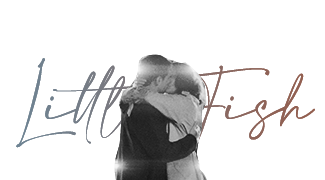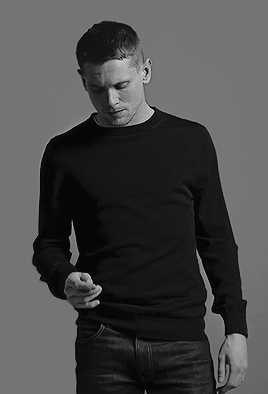



FLAUNT – Jack O’Connell pauses, rakes his knuckles across his knees, and shouts, with a northern English kind of muscularity, “Ooff.”
I’ve just asked him to describe his perfect night out—his version of a truly good time. The 25-year- old is sitting with me today to talk about the future. He doesn’t want to trip down the path Hollywood continually prods him along; to play the scar-faced bullyboy for the rest of his life. Had I asked him this question back when he was auditioning for parts at the Royal Court, in the thick of a year-long Young Offender’s Referral Order as a late teen, I suspect his answer would have been brief: “To stay out of jail.”
Instead, he talks about wide horizons. Good music, a decent crowd, a stunning backdrop. Oh, and nice quality beverages. “Not just tinnies.”
O’Connell—who stars this spring in Jodie Foster’s reality TV thriller, Money Monster—grew up in rural Derby. You can trace the trouble he got into there along the ridge of his forehead, where flesh is divided by thick, ruler-straight stress marks. It’s a toughness that has brought him film roles and fashion gigs; from a starring part in David Mackenzie’s drama Starred Up (2013)—where he plays a savagely hotheaded prisoner—to a Prada shoot with Craig McDean—where he appears in a taut, noisily patterned turtleneck, swizzling a gin tumbler. Shane Meadows spotted his leatheriness early on, casting him as bovver-booted gang protégé in 2006’s brilliant, bleak, fascism tome, This Is England.
There was always a strange sadness to O’Connell’s violence, though. In an early days This Is England audition tape, he raps as part of a three-piece hip-hop group, a knock-off designer tee jangling around his knees. “I’m a tough little cunt and I’ve got no hair,” he spits, almost melancholically. “I’ll put you down and I don’t care.” Then there was ITV’s cop soap The Bill, in which he depicts sexually abused 13-year-old Ross Trescot, who rapes a middle aged policewoman. For the largest part of O’Connell’s decade-long career, he’s played characters that are bad because bad things have happened to them: in turn, his performances are both brutal and beckoning.
But it wasn’t until he landed the part of hell-raising teenager James Cook in Skins that O’Connell found household fame. The character is a womanizing, drug-addled brute, struggling to come to terms with his troubled upbringing. “I couldn’t forget about Cook, even if I wanted to. I’m proud of him,” he says, before pre-empting the psyche-assessment questions I had lined up. “My perspective on rage is that it’s a mask for fear. A lot of people make mistakes when they’re enraged. I seemed [to] be equipped with it, but that seems to be down to my experiences growing up.” For a while, as Cook’s addictions spiraled out of control on Skins and O’Connell dealt with his father’s death when he turned 18, the pair lived very similar lives.
Despite his lingering affection for the troublemaker, there’s a line drawn under the Cook days. In 2016, O’Connell is cleaner in body and mind, and is aware of the kind of work he should be taking on. “I’m reluctant to talk about [Cook] too much, because when it was recent, I knew I had to somehow shake that off,” he says. He’s keen to focus on the roles that say something larger about the world around him, and is hyper-aware of Hollywood’s “lazycasting” vortex. “It’s what I’d like to achieve on the whole as an actor: a diverse range of work. It’s gonna be a lot easier for certain production companies to cast me in a role that they’ve already seen me do. In my opinion, that’s a lack of imagination, and that’s unhelpful to me. But I’m not looking for handouts, either.”
It’s interesting to hear a recent BAFTA EE Rising Star award winner talk about reaching for success. For O’Connell, it isn’t quanti able; the goal is to earn your place. “I’ve gotta go out there and get it, I’ve got to go to auditions,” he assesses. “I’m only ever gonna get offered rungs that are sure- fire. Ain’t got a lot of time for people just turning up playing themselves, over and over.” When we meet, the actor had recently finished a stint as a troubled snooker champion at Sheffield’s Crucible Theatre—home to the sport’s annual World Snooker Championships. After the last matinee performance ended, he burst into tears. “We’d done it. We’d done it! We got a standing ovation; they all seemed to stand up together. There was a euphoria there that I hadn’t experienced before. I want to again.”
In Money Monster, he plays a New York suburbanite who breaks onto the set of a gambling TV show to expose its corrupt pay-to- play software. He finds host George Clooney, who spends most of the lm with a bomb strapped to his chest. It’s Network (1976) for the Betfair generation. “I’d seen Network maybe only a year before I’d read the script for Money Monster,” he says, hunching forward. “I really responded well to that film, and that kind of filmmaking that really raises questions about the society we live in and how it’s financially run. If we don’t, we’re in danger of those kinds of conversations being taken out of the public [eye].
“I think we have a responsibility as filmmakers, as storytellers, to remain relevant,” he continues. “A lot of stories are told to distract us. By demonstrating it through a character that has been done-over, we can echo the voice of millions of people being stolen from.”
He talks at length about how, increasingly, unscrupulous multinational corporations—those with little interest outside exponential financial growth—abuse the vulnerable. That, and the pisstakery he got up to on set with Clooney. His co-star took particular interest in O’Connell’s football fanaticism after he found out he had fitted himself with an earpiece, secretly listening to Derby County matches between takes. “I asked him if he was up for a photo with a Derby County scarf and he was, but we were playing so shit I didn’t feel like getting us any publicity,” he laughs. “We lose a lot.” Is that how he got the rage going that day, I ask. “Maybe that’s where it all comes from anyway. Following that shower of shit.”
In Cédric Jimenez’ forthcoming wartime drama HHhH, he plays a Czech paratrooper sent to kill the then-Reich Protector of Bohemia and Moravia. O’Connell tested his physical mettle for the part, refusing to use his stunt double and spending hours on set with toxic paraffin candles, which are banned in every country other than Prague, where filming took place. “I red a ton of live blanks, too.” I remind him that, without protective gear, setting off blanks too close to your head can cause internal bleeding. He seems unfazed. “It was just cool as fuck. Loading magazine after magazine, pretending to shoot Nazis…”
Things lighten up from there—he even starts to tell me a joke, before a publicist shuts us down: “OK. Jimmy Savile and Gary Glitter are sitting in a bar…” We return to talking about good times, and what they mean to him now. I comment on how some nights play out like movies— bar-by-bar, set piece-by-set piece. “It’s just spitballing innit,” he quips. Last summer, when a project with Terry Gilliam fell through, he upped sticks for Cambodia, to aid Angelina Jolie’s various humanitarian projects. “I did a lot of good there, it felt brilliant. I did some bad, too…” Bad? “You know, nightlife stuff.” It’s hardly surprising Jolie took such a shine to O’Connell, describing him as “the least Hollywood person I’ve ever met.”
O’Connell may be one of the most daring young talents on the circuit—a complex, scarred character feeling out his artistic capabilities—but there’re glimmers of a young hellraiser in him, still. I don’t know about you, but I take comfort in that.
















